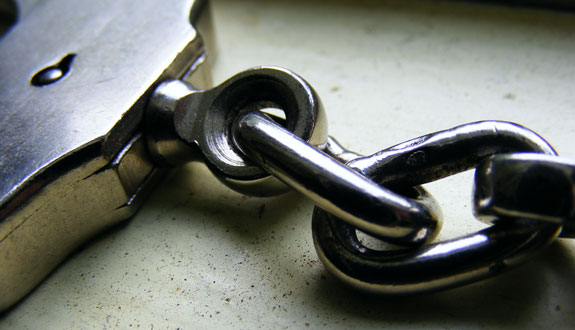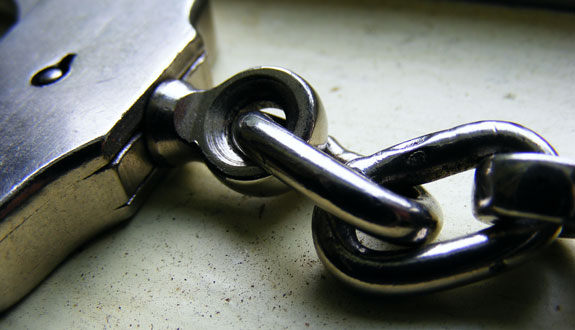Disclosing on Law School Admissions
- by
- Nov 09, 2011
- Admissions, Explanatory Essays
- Reviewed by: Matt Riley


I hear some of you pre-law students out there have been having a good time. Too good of a time, if truth be told. And now you might be forced to check that “Yes” box next to one of the Character and Fitness questions on your applications. I’m sure all you pre-law trouble-makers have some questions, so here are some answers.
1) Do I have to disclose?
Your default answer to this is “Yes”. Without knowing anything else about your pre-law situation, I default to this answer. If you don’t disclose when you should, you’ll have issues sitting for the bar. If you disclose when you shouldn’t, you really won’t see much of a downside at all. So default to full disclosure. Even those crimes that were expunged from your record.
Now, that being said, some of the questions will leave you some wiggle room. If it only asks for convictions, only tell them of crimes which you were charged, prosecuted and convicted pre-law. If they say to skip moving violations, don’t list every speeding ticket (though if they ask for everything, throw those speeding tickets on the list). But, again, include things expunged.
If you’re not sure, it’s better to disclose your pre-law shenanigans than withhold them.
2) How will this information affect my application?
In all honesty, all that fun you had pre-law probably won’t affect you much at all. If they didn’t let people who drank too much into law school, well, at the very least, most of my friends would have been rejected.
A minor in possession charge? They won’t care. Speeding tickets? Maybe if it calls into question your ability to read signs, but a reasonable amount won’t raise any eyebrows. Murder? Well, you can always apply to Tulane.
The law schools are asking this question for the following three purposes, which relate directly to how they’ll use the information:
A) They want to make sure you can pass the Character and Fitness portion of the bar.
They want graduates to practice law, and if they don’t think you’ll be able to sit for it because of your pre-law activities, that’s a big deal. In general, it takes more than a Public Intoxication for that to happen. However, if you have any questions about your eligibility, you should contact a local professional who has expertise in the area. Preferably pre-law school, so you don’t spend $200K just to be told you’re screwed.
Also, the State Bar will check your answers on your applications against the background check they run. Don’t lie, because that’s a bigger issue to them than shoplifting.
B) They want to make sure you haven’t done anything pre-law school to seriously call into question your character.
Drinking while you’re at a frat party at 19? Being in a frat might call your character into question (I kid), but that won’t raise any red flags. Speeding tickets, public intoxication, minor possession charges — obviously, none of these are ideal if you’re pre-law. However, they also don’t make me think your character is weak.
Fraud, embezzlement, major theft, and assault, on the other hand, are crimes of moral turpitude and will raise red flags. Don’t do any of these pre-law school (or post-law school, for that matter).
C) They want to make sure that you haven’t engaged in a pattern of behavior, pre-law school, that calls your character into question.
A single speeding ticket usually won’t raise red flags. Twenty-five speeding tickets pre-law school, however, is a troubling (though impressive) pattern displaying a disregard for authority and the law.
Multiple alcohol-related offenses pre-law school? Again, this calls into question your judgment and ability to control yourself.
If you have enough infractions to establish a pattern, then you might have a problem. Too many alcohol-related offenses pre-law? Sign up for AA meetings, and volunteer at programs. A slew of speeding tickets? Stop driving too fast, and volunteer with MADD.
3) So how do I mitigate the infractions committed pre-law school?
The best way is to have a significant period of time between your last infraction and your application. If you were convicted of a DUI last week, you’re not a significantly different person. If you were convicted of shoplifting when you were 12, you probably grew up quite a bit in the interim.
Also, volunteer in a capacity that demonstrates remorse. DUI? Attend AA meetings and sign up for a program to talk with high school students about the idiocy of driving drunk. Theft? Repay all debts before law school, and maybe volunteer with a neighborhood watch program. Prostitution? I hear some churches offer re-virgination rituals. So I guess find God?
And, most importantly, comply with everything to which the court sentences you, and then some.
Finally, write an addendum to attach to your application. Most schools will ask all pre-law students who check the “Yes” box to do this anyway.
This essay should do three things:
1) Completely answer any questions I might have about the situation. Who, what, when, where, why, etc. If you show it to someone and they still ask a question about the event, write more.
2) Explain the outcome of court proceedings, as well as your compliance with the sentence.
3) Show of contrition.
So, in short, don’t blame anyone else (even if it wasn’t your weed). Take full responsibility. Admit to being an idiot pre-law school. Assure the law school that you won’t do it again (bonus points for backing this up with a lot of time between now and the infraction, more if you’ve done non-court mandated community service).
And that’s really all there is to do for all you pre-law convicts.
Good luck!
Search the Blog

Free LSAT Practice Account
Sign up for a free Blueprint LSAT account and get access to a free trial of the Self-Paced Course and a free practice LSAT with a detailed score report, mind-blowing analytics, and explanatory videos.
Learn More
Popular Posts
-
logic games Game Over: LSAC Says Farewell to Logic Games
-
General LSAT Advice How to Get a 180 on the LSAT
-
Entertainment Revisiting Elle's LSAT Journey from Legally Blonde








